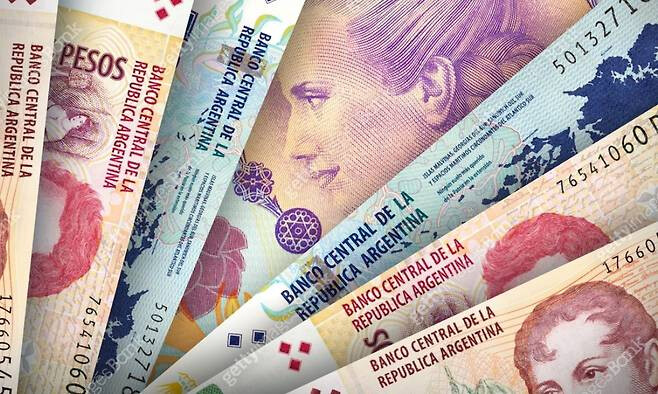
Argentina – Controversy has erupted in San Luis Province, Argentina, after a woman allegedly spent a large sum of money erroneously transferred to her bank account by the provincial government. On May 6, Veronica Alejandra Acosta was checking her child support payment when she discovered an astonishing 510 million pesos (approximately ₩600 million KRW, or about $445,000 USD) had been deposited into her account. It was later confirmed that this significant amount was a mistaken transfer by the San Luis provincial government.
24-Hour "No Questions Asked" Spending Spree and the Government's Delayed Response
Immediately after discovering the windfall, Acosta reportedly went on a spending spree, purchasing various electronics such as a refrigerator, air fryer, microwave, and television, as well as groceries. She even bought a used car, spending a substantial portion of the money within approximately 24 hours. The provincial government, realizing its error belatedly, promptly froze Acosta's account the following day, fortunately recovering about 90% of the total amount. However, the tracking and accountability for the remaining spent funds remain at the center of the controversy.
"Gift from God" or "Misappropriation"? Conflicting Claims
Police are currently investigating Acosta and six of her relatives who received money from her, on suspicion of misappropriating provincial government assets. In particular, Acosta is suspected of attempting to conceal her spending by dividing the transactions into 66 smaller transfers, allegedly exploiting small remittance limits. This could be interpreted as a deliberate attempt to avoid detection by banks or financial authorities, which might flag a single large withdrawal.
However, in an interview with local media, Acosta pleaded innocence, claiming she believed the money was a "gift from God" and had no idea it belonged to the provincial government. She stated that no one had explained the source or nature of the deposited funds until the police investigation began, suggesting a lapse in the provincial government's initial response. Her assertion that a large sum was deposited without any prior notification or warning from the bank or the provincial government has resonated with some segments of the public.
Online Opinion Divided: The Debate Over Accountability
The incident has sparked a heated debate within Argentinian society and online. Some argue that it is unfair to blame a private citizen for a clear mistake made by the provincial government, defending Acosta. They contend that the government's flawed system and poor management are the root cause, and it is unjust to fully attribute responsibility to an individual. Furthermore, some opinions support Acosta's "gift from God" claim, citing that it would be difficult for an ordinary citizen to accurately identify the source of such a large, sudden deposit.
Conversely, there is strong criticism of Acosta's actions for indiscriminately spending a large sum of money without verifying its source. Critics argue that it is common sense to confirm the source of a sudden large deposit or report it to the relevant authorities, and avoiding this and spending the money makes it difficult to avoid blame. The method of splitting the transactions into smaller amounts, in particular, suggests intent, further fueling negative public opinion. Local media report that authorities are meticulously analyzing Acosta's transaction records to locate the remaining unrecovered funds, indicating the possibility of further legal action.
Similar Cases and Legal Responsibility
Similar cases of erroneous transfers due to banking or corporate system errors occur periodically worldwide. In most countries, if a recipient arbitrarily uses such an amount, charges like "unjust enrichment" or "embezzlement" may apply. The general legal interpretation is that simply claiming it was "money mistakenly received" does not absolve one of legal responsibility. Therefore, even in Acosta's case, despite it being a government error, if she used the funds knowing or having sufficient reason to know they were not hers, she might face legal penalties. Argentina's criminal justice system will likely apply specific provisions and precedents related to such incidents.
This incident goes beyond a mere individual transgression, raising important questions about the provincial government's financial management system loopholes and citizens' ethical responsibilities. A clear explanation is needed as to why the provincial government mistakenly transferred such a large amount and why immediate action was not taken after the erroneous transfer occurred. Additionally, there is likely to be a lively social discussion about the ethical and legal responsibilities citizens bear when unexpectedly receiving a large sum of money. All eyes are on the outcome of the police investigation and the court's ruling, anticipating their impact on Argentinian society.
[Copyright (c) Global Economic Times. All Rights Reserved.]



























